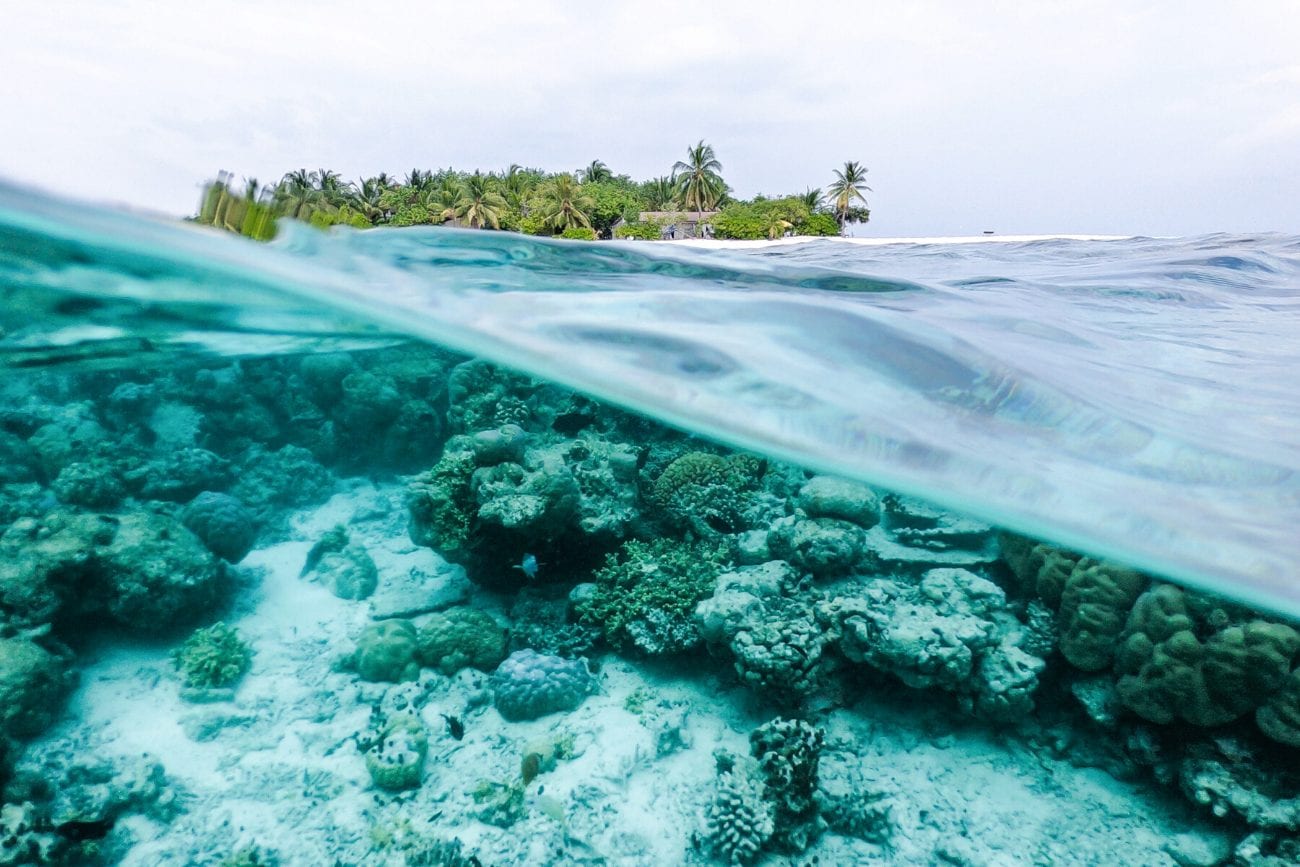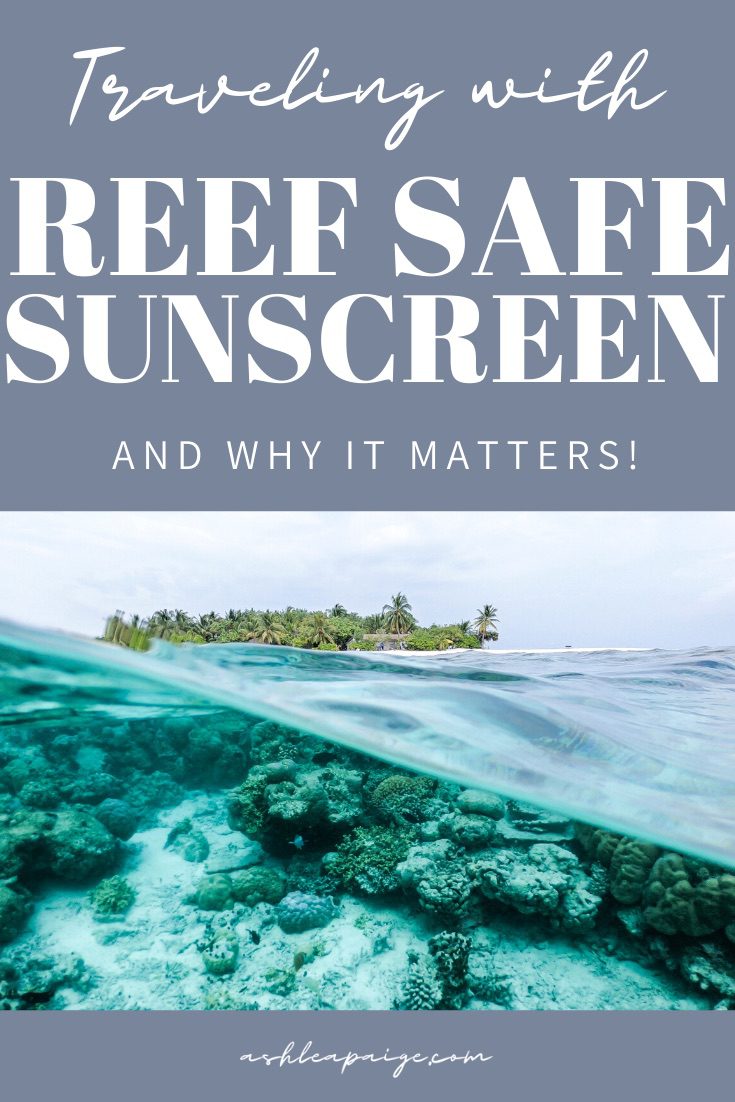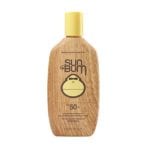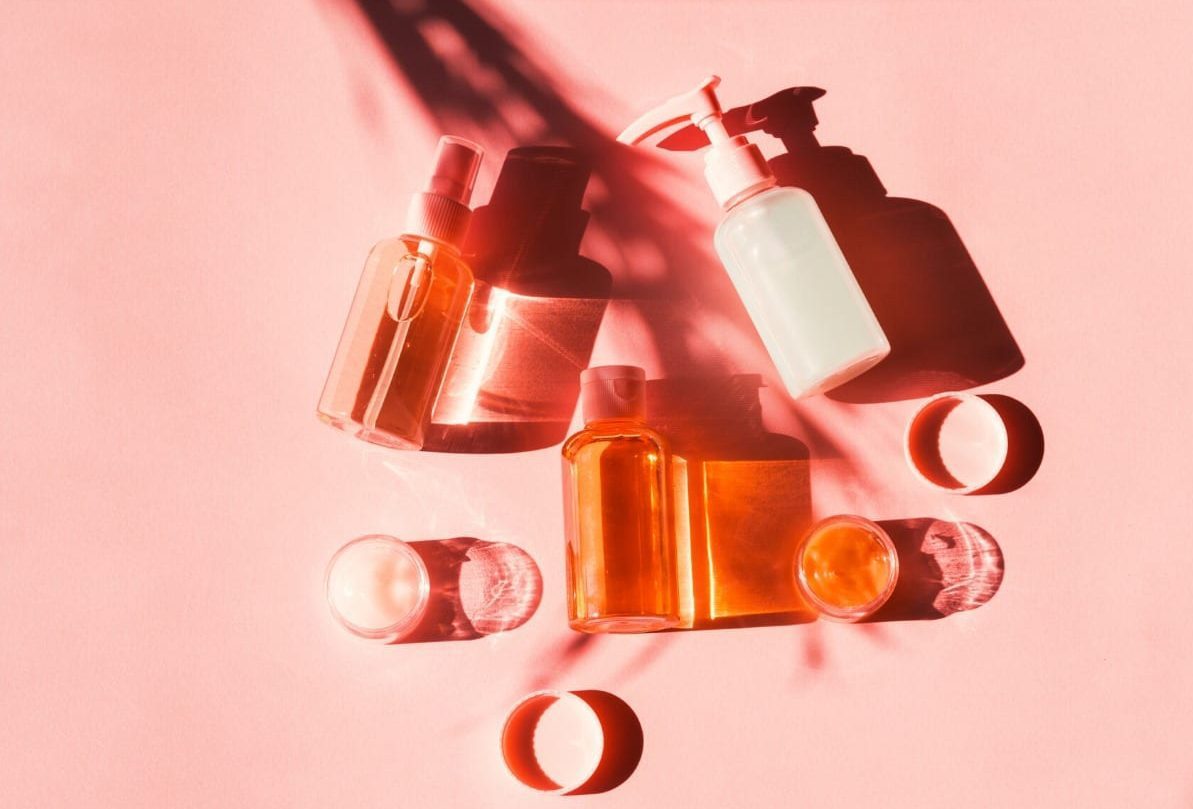
Traveling with Reef Safe Sunscreen & why it Matters
Did you know that over 14,000 tons of sunscreen get washed into our oceans and coral reefs each year? While wearing sunscreen is super important for your skin many chemical-based sunscreens end up bleaching and killing our coral reefs. Beautiful places such as Hawaii, the Maldives, and the Great Barrier Reef are being severely impacted by the number of harsh chemicals washed into their ecosystem. It’s time to save our oceans! Check out below my eco-friendly guide to traveling with reef-safe sunscreen and how you can make a change today.
Is your sunscreen safe?
Here’s what you need to know about traveling with reef-safe sunscreen & why it’s important to make the switch.
What exactly is coral bleaching?
While it’s said that the majority of coral belching is due to rising sea temperatures (hello climate change) harsh chemicals found in sunscreens then exposed to sunlight & water can become extremely toxic, therefore killing off our coral’s DNA and its ability to reproduce. Mass areas of the Great Barrier Reef have been affected by bleaching already which indicates that our coral reef is under huge amounts of stress. By reducing treats and taking action we can enable the reefs to recover naturally.
Toxic chemicals such as oxybenzone and octinoxate are not just harming our coral reefs but are also harming our marine life.
Mineral vs chemical – what you need to know
The main difference when it comes to choosing a mineral-based sunscreen is found in the ingredients list. Regular chemical-based sunscreens contain toxic chemicals such as oxybenzone, octinoxate which is harmful to the ocean and can potentially cause future health problems to the body. Mineral-based sunscreens, however, contain two natural minerals such as zinc oxide and titanium dioxide. These are not harmful to the ocean and simply sit on top of the skin and reflect the sun’s UV rays. It’s important to note that not all sunscreens are made the same, so be sure to do your research and read those labels on the back.
Find out more
The best reef safe sunscreen for 2021
What to look for when choosing a reef-friendly sunscreen
While there is still much more to be done in order to save our coral reefs & marine life, our personal choice in choosing to swap to a more coral reef safe sunscreen is certainly a huge step in the right direction. Here are a few key points to look for when it comes to choosing an eco-friendly sunscreen.
Know your labels – Steer clear of ingredients such as oxybenzone and octinoxate, and sunscreens that contain vitamin A. Look for bottles that say “reef safe” and are “non-nano”. Mineral-based sunscreens containing zinc oxide and titanium dioxide are much safer to use & work just as well.
Lotion over spray – When using a spray you’re not only spraying your body but everything else around you. Applying spray releases microscopic chemicals in the air, which are then inhaled into the lungs and dispersed onto your surroundings.
More simple the better – Sunscreens that are more natural & contain fewer ingredients are less likely to cause harm to the ocean and are overall more healthy for your skin. Mineral-based sunscreens are the best way to go as they contain zinc oxide and titanium dioxide that doesn’t penetrate the skin but rather adds a protective top layer keeping you safe from the sun.
Handy Tips!
Don’t just rely on sunscreen – Make sure you protect your skin from those harsh UV rays. Put on a hat and shirt aka in Aussie terms, Slip, Slop Slap folks!
Utilize Shade – Sitting in direct sunlight can be most harmful, be sure to utilize shady spots like large trees, umbrellas or canopies that will help shield you from the sun, remember UV radiation is invisible and can reflect off most surfaces.
Apply, apply, apply! – So it has been about three hours since you last applied sunscreen and now you look and feel like a red lobster. Yep, we’ve all been there. Sunscreen doesn’t provide 24hr protection so make sure you apply every few hours to keep yourself protected.
Reef safe sunscreens I love & use
Need some suggestions? Check out below a few of my favorite reef safe sunscreen brands that I love to travel with.
The bottom line!
Make sure the sunscreen you are using isn’t harming the ocean. Protect your skin for the better and help save the coral & marine life from any further sunscreen pollution. Spread the word & make the switch today!
Pin this for later!












